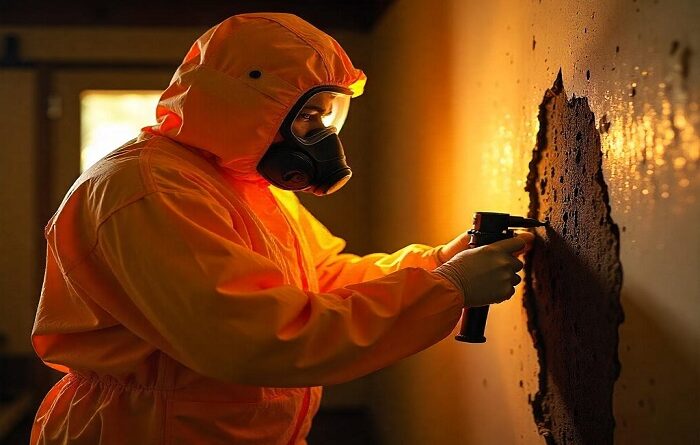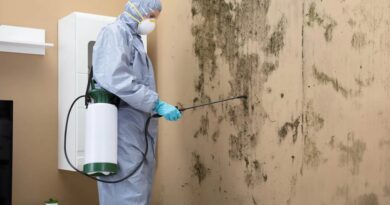Beyond the Surface: How Professional Mold Remediation Protects Your NJ Property Value
Mold can be a hidden menace in homes, often lurking in damp corners and unnoticed spaces. For homeowners in New Jersey, understanding the implications of mold and the importance of professional mold remediation is crucial for maintaining property value. Mold not only poses health risks but can also significantly diminish the appeal and marketability of a home. This article delves into the multifaceted aspects of mold remediation, exploring its necessity, processes, and benefits for homeowners looking to protect their investments.
Understanding Mold and Its Impact
Mold is a type of fungus that thrives in moist environments. It can grow on various surfaces, including wood, drywall, and even fabric. While some mold is harmless, others can produce allergens and irritants that may lead to health issues.
Health Risks Associated with Mold
Exposure to mold can trigger a range of health problems, particularly for individuals with respiratory conditions or weakened immune systems. Common symptoms include:
- Allergic Reactions: Sneezing, runny nose, and skin rashes.
- Respiratory Issues: Coughing, wheezing, and difficulty breathing.
- Long-term Effects: Chronic exposure can lead to more severe health complications, including asthma and other respiratory diseases.
Structural Damage to Property
Beyond health concerns, mold can wreak havoc on a home’s structure. It can weaken walls, ceilings, and floors, leading to costly repairs. Mold can also compromise the integrity of building materials, making it essential for homeowners to address mold issues promptly.
The Importance of Mold Remediation
Mold remediation is the process of identifying, removing, and preventing mold growth in a property. This process is vital for several reasons:
Preserving Property Value
A home with mold issues can deter potential buyers and lower its market value. By investing in professional mold remediation, homeowners can enhance their property’s appeal and maintain its worth.
Ensuring a Safe Living Environment
Mold can pose serious health risks, making it essential to create a safe living environment. Professional remediation ensures that mold is effectively removed, reducing the risk of health complications for residents.
Compliance with Real Estate Regulations
In many states, including New Jersey, sellers are required to disclose any known mold issues. Addressing mold problems before listing a home can prevent legal complications and foster trust with potential buyers.
The Mold Remediation Process
Understanding the mold remediation process can help homeowners appreciate its importance and effectiveness. Here’s a breakdown of the typical steps involved:
Initial Assessment
The first step in mold remediation is a thorough inspection of the property. This includes identifying visible mold growth and assessing areas prone to moisture, such as basements, attics, and bathrooms.
Mold Testing
Once the inspection is complete, mold testing may be conducted to determine the type and extent of mold present. This step is crucial for developing an effective remediation plan.
Containment
To prevent the spread of mold spores during the removal process, containment measures are implemented. This may involve sealing off affected areas and using negative air pressure to keep spores from circulating throughout the home.
Removal and Cleanup
After containment, the actual mold removal process begins. This involves:
- Removing Contaminated Materials: Any materials that cannot be salvaged, such as drywall or carpeting, are carefully removed and disposed of.
- Cleaning Surfaces: Remaining surfaces are cleaned using specialized equipment and antimicrobial solutions to eliminate mold spores.
Restoration
Once the mold has been removed, restoration work may be necessary. This can include repairing or replacing damaged materials and ensuring that the affected areas are returned to their original condition.
Choosing the Right Mold Remediation Company
Selecting a qualified mold remediation company is crucial for effective results. Here are some factors to consider:
Experience and Certification
Look for companies with a proven track record in mold remediation. Certifications from recognized organizations can indicate a company’s expertise and commitment to best practices.
Comprehensive Services
Choose a company that offers a full range of services, including mold inspection, testing, removal, and post-remediation verification. This ensures a thorough approach to mold issues.
Transparent Pricing
A reputable company should provide clear and detailed estimates, outlining the costs associated with each step of the remediation process. Avoid companies that offer vague pricing or pressure you into immediate decisions.
The Role of Mold Inspections
Mold inspections are an essential part of the home-buying process, especially for properties in areas prone to moisture. Here’s why they matter:
Identifying Hidden Issues
A thorough mold inspection can uncover hidden mold growth that may not be visible to the naked eye. This is particularly important in older homes or those with a history of water damage.
Informing Buyers
For prospective buyers, a mold inspection provides valuable information about the property’s condition. If mold is detected, buyers can negotiate remediation efforts with the seller before finalizing the purchase.
Peace of Mind
Knowing that a property has been inspected for mold can give buyers confidence in their investment. It reduces the likelihood of unexpected issues arising after the purchase.
Post-Remediation Verification Testing
After mold remediation is complete, verification testing is essential to ensure that the process was successful. This involves:
Conducting Air Quality Tests
Air samples are collected from the remediated areas to check for the presence of mold spores. This helps confirm that the air quality is safe for occupants.
Visual Inspections
In addition to air quality tests, visual inspections are conducted to ensure that all mold has been removed and that no new growth has occurred.
Documentation
A reputable mold remediation company New Jersey will provide documentation of the testing results, which can be valuable for homeowners and potential buyers.
Preventing Future Mold Growth
Once mold has been removed, it’s crucial to take steps to prevent its return. Here are some effective strategies:
Control Humidity Levels
Maintaining indoor humidity levels below 60% can significantly reduce the likelihood of mold growth. Using dehumidifiers and ensuring proper ventilation in moisture-prone areas can help achieve this.
Regular Inspections
Conducting regular inspections of your home can help identify potential mold issues before they escalate. Pay special attention to areas prone to moisture, such as bathrooms and basements.
Prompt Repairs
Addressing leaks and water damage promptly is essential for preventing mold growth. Regular maintenance of roofing, plumbing, and appliances can help mitigate moisture issues.
The Financial Implications of Mold
Ignoring mold issues can have significant financial repercussions for homeowners. Here’s how:
Decreased Property Value
Homes with mold problems often sell for less than comparable properties without such issues. This can lead to substantial financial losses for sellers.
Increased Repair Costs
The longer mold is allowed to grow, the more extensive the damage becomes. This can result in higher repair costs and more extensive remediation efforts.
Potential Legal Liabilities
Failing to disclose known mold issues during a real estate transaction can lead to legal complications. Homeowners may face lawsuits or financial penalties if buyers discover undisclosed mold problems after the sale.
Conclusion
Mold remediation is a critical process for homeowners in New Jersey looking to protect their property value and ensure a safe living environment. By understanding the importance of mold inspections, the remediation process, and preventive measures, homeowners can take proactive steps to safeguard their investments. Engaging professional mold remediation services not only addresses existing mold issues but also helps maintain the integrity and value of your home for years to come.
In a market where property values can fluctuate, ensuring your home is mold-free is an investment in your future. Whether you’re buying or selling, understanding the implications of mold and the benefits of professional remediation can make all the difference in your real estate journey.




